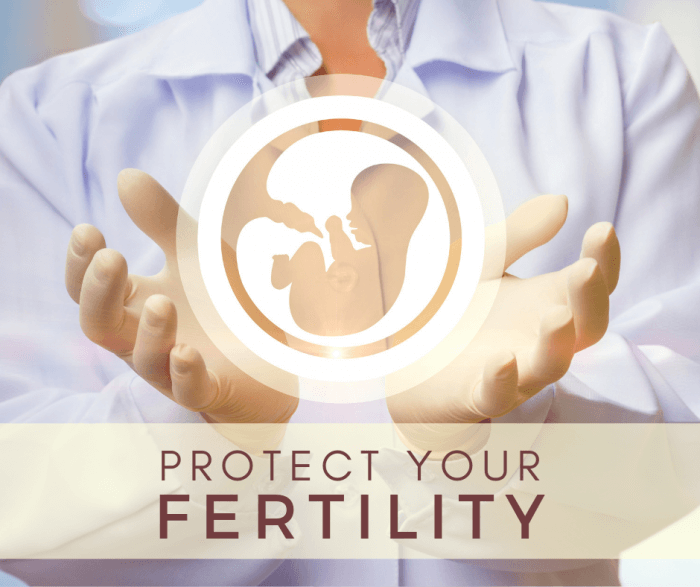
Polycystic ovarian syndrome (PCOS) impacts many aspects of a woman’s health. This disease affects her moods, her weight, and her fertility, among many other things. This surprisingly common condition is difficult to diagnose and treat. That’s in part because conventional medicine practices are often geared towards tackling the symptoms without truly getting to the underlying reasons for those symptoms. Natural treatments for PCOS address this frustrating condition from all angles. We address the whole system with a special focus on fixing the root cause.
What Is PCOS?
Simply put, Polycystic Ovarian Syndrome is a hormonal problem that affects women during their reproductive years. It’s marked by irregular ovulation. Many, but not all women, also experience higher than normal levels of the “male” hormones or androgens such as testosterone. The name refers to changes that occur in the ovaries when eggs don’t develop properly and get released. Your ovaries become filled with small cysts as a result of these hormonal imbalances.
Because PCOS is difficult to diagnose it’s a bit uncertain how common it is. Estimates say that about 5 to 10 percent of women experience it during their reproductive years.
The Symptoms of PCOS
The symptoms of PCOS often start to appear slowly and worsen over time. These changes are often easy to dismiss as normal. They may be common, but they are far from normal.
If you experience the following symptoms, it is time to talk to a naturopathic doctor:
Irregular Periods
Some women with PCOS cease to menstruate at all. Others get a period every 5-8 weeks. Some will develop very heavy and/or painful periods.
Infertility or Difficulty Conceiving
Cystic ovaries, as well as the accompanying hormonal imbalances, make conception difficult. The cysts indicate irregular ovulation. The conditions are clearly not ideal to release a good quality egg. This leads to the need for extra interventions to get and stay pregnant. Correcting the hormone imbalances that cause PCOS allows eggs to mature and get released normally, improving fertility.
Weight Gain
Are you gaining weight without any particular change in your diet or lifestyle, especially around your belly? Women with PCOS often develop an “apple” shape in which their body fat collects in their torso area. Thyroid problems also trigger weight gain and irregular periods. It’s important to have thorough hormone and thyroid testing done to identify the cause of unexplained weight gain.
Acne
Male hormones contribute to facial and back acne. They are particularly associated with deep, painful cystic-type acne along your jawline. Other skin conditions such as dark patches of skin (acanthosis nigricans) and skin tags also often go hand-in-hand with PCOS.
Hirsutism
Hirsutism means the presence of extra hair on your face and body. You may particularly notice it on your upper lip, chest, and back as a result of hormonal imbalances.
Hair Loss
Women with PCOS endure not only excess hair in undesirable locations, but also loss of hair, thinning hair, or lack of hair growth on their heads.
Mood Changes
The changes in hormones that accompany PCOS bring on an increased risk of depression and anxiety. Hormones regulate how well your neurotransmitter receptors in your brain work. The neurotransmitter receptors that take up your feel-good neurotransmitter, serotonin, and your calm and relaxed neurotransmitter, GABA, don’t work properly without the right levels of the hormones estrogen and progesterone.
What Are The Underlying Causes Of PCOS?
Insulin Resistance
Insulin resistance is a major factor in PCOS. About 70 percent of women with PCOS also have insulin resistance. Obesity, high blood sugar, inactivity, and stress all lead to insulin resistance. However, in PCOS insulin resistance seems to be both a symptom and a driver of the condition. Despite common misconceptions, insulin resistance affects all body types, not just overweight women. Thin women can be insulin resistant too.
Genetics
It is very difficult to determine one precise cause for PCOS. Many factors contribute to its development. Genetics do play a role, however, so if your mother or sister has PCOS, you are more likely to develop it too. A parent or grandparent with type II diabetes also raises red flags about your risk for Polycystic Ovarian Syndrome.
Weight
Carrying extra weight also contributes to PCOS. Of course, this creates a frustrating dynamic since PCOS makes you more likely to keep gaining weight. These hormonal imbalances also make it harder to lose that extra weight. Correcting the hormone problems is the key to losing the weight.
Stress
As well as the more measurable factors, some research suggests that high stress levels play a role in the development of PCOS. That’s because stress wreaks havoc on your hormones. Stress increases cortisol production, increasing blood sugar, resulting in an overproduction of insulin. Higher insulin leads to higher testosterone.
PCOS Frustration
Not only is it difficult to diagnose PCOS, it is also tricky to treat. Conventional treatment simply masks the symptoms by putting women with PCOS on birth control pills. The pill provides an artificially induced period each month. The hormones in the pill cover up the symptoms.
One clear flaw to this approach is that birth control pills won’t help women who are trying to conceive. More importantly, this approach isn’t getting to the root of the problem, in fact, it may actually make it worse. You see, birth control pills that contain estrogen raise blood sugar levels in addition to carrying other health risks. The goal should be to restore overall health, not to add the potential for more problems.
The Natural Approach To PCOS
A naturopathic approach considers the whole person in treating PCOS, or any other health problem. That means addressing the underlying causes of hormonal imbalances. The goal is to improve all aspects of a person’s health – and consequently, reduce Polycystic Ovary symptoms.
Treatment starts with a thorough evaluation of your health history as well as thorough hormone testing. Although the exact protocols will vary by patient, here are some proven tips for treating Polycystic Ovarian Syndrome.
Weight Loss Plan
If you’re overweight, work with your naturopathic doctor to create a healthy weight-loss plan. Losing even small amounts of weight can make a big difference in PCOS symptoms. Even losing 10% of your current weight helps. However, you want to approach weight loss in a way that doesn’t create more stress on your body. Stress has a negative effect on insulin levels. That’s why it’s important to work with your naturopathic doctor.
Get Enough Sleep
A good night’s sleep is an essential part of hormone regulation. Interestingly, studies have found that sleep problems are twice as common for women with Polycystic Ovarian Syndrome. Hormone imbalance contributes to sleep dysregulation. Getting your hormones better balanced will help you go to sleep and stay asleep. So be sure to pay attention to your sleep habits.
Get some healthy exercise for PCOS
Moderate exercise helps with weight loss. It also relieves stress and balances your cortisol levels. One study found that a mix of high-intensity interval training and strength training helps women with Polycystic Ovarian Syndrome specifically. However, talk to your naturopathic doctor about the best approach for you as many women with Polycystic Ovaries do better with gentle exercise. Very heavy weight training increases a potent form of testosterone known as DHT and may make symptoms worse.
Natural, Whole Food Diet
Eating whole foods without preservatives or other endocrine disruptors is the best approach to fully nourishing your body’s intricate, endocrine system.
Balance Protein And Carbs
You don’t have to eliminate carbs altogether, but do try to reduce your intake. If you do eat them, choose unprocessed, low glycemic index, complex carbs. Balance them with sources of lean protein. As well, keep your blood sugar stable by eating 3 meals at regular intervals. Intermittent fasting is an effective way to lower insulin levels.
Improve Gut Health
By improving your gut health to reduce inflammation and improve elimination, probiotics help to regulate your hormone levels. Prebiotic fiber also helps correct imbalances in your gut flora. It also fuels a healthy gut lining. Your microbiome impacts not only your digestive and immune systems but also has an impact on your metabolism, weight and blood sugar levels as well.
Choose Foods High In Omega-3 Fatty Acids
Essential Fatty Acids (EFAs) are the building blocks for anti-inflammatory prostaglandins. These are chemicals in your body that reduce inflammation. Inflammation is a common phenomenon in women with PCOS. A deficiency in EFAs is also very common. Good food sources include fatty fish such as salmon, mackerel, herring or sardines, as well as eggs, nuts, and seeds.
Talk to your naturopathic doctor about supplementation
Depending on your personal profile, helpful supplements could include magnesium, vitamin D, and calcium. In particular, inositol (a B vitamin, also called vitamin B8) is effective treatment. Chromium helps your body to metabolize sugar and stabilize your blood glucose levels. The right hormone testing and nutrient testing by your naturopath uncovers any deficiencies that you may have. It helps us devise a uniquely targeted supplement protocol based on your specific needs. There is no “one size fits all” approach.
Take Control of Your Hormones
Yes, this disease is frustrating. However, much research has been done recently on functional medicine testing and effective natural, holistic treatments. By treating your body as an integrated set of systems, you can get to the bottom of your symptoms and get on the path towards true balance and long term well-being.
Ready to take control of your hormones? Call the clinic at 416.481.0222 or book online and we can get started!
Medically reviewed by Naturopath Dr Pamela Frank
References
https://www.hindawi.com/journals/ecam/2012/591654/
https://www.sciencedirect.com/science/article/pii/S1756464617307727
https://www.ncbi.nlm.nih.gov/pmc/articles/PMC3277302/
https://www.ncbi.nlm.nih.gov/pmc/articles/PMC4135453/
https://www.ncbi.nlm.nih.gov/pubmed/28595797
https://www.nichd.nih.gov/health/topics/pcos
https://www.ncbi.nlm.nih.gov/pmc/articles/PMC6250088/

